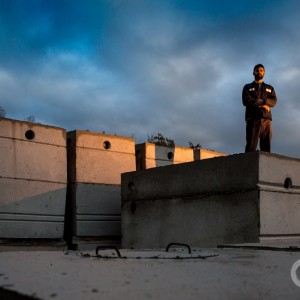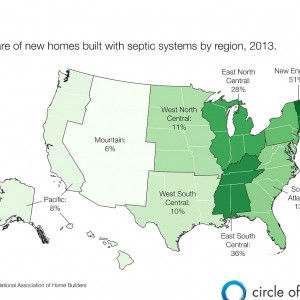The Stream, October 16: Aleppo Residents Contend With Water Shortages
The Global Rundown |
Poor water quality and access are forcing residents to leave Aleppo, Syria, amid the country’s civil war, while tensions over water are high along the border of Afghanistan and Iran. The U.S. EPA says test results show emergency water delivered to Navajo farmers this summer was safe for irrigation and livestock. The European Investment Bank will loan money to Georgia to improve wastewater infrastructure, and a Google project is mapping rivers in the United States to study fish habitat. Strong rainstorms near Los Angeles are causing mudslides.
“Can you imagine life without electricity? Well, we’ve tried that. We managed to adapt to all kinds of shortages and risks. But water is a different issue – how can you possibly live without it?”–Layana Darwish, a former resident of Aleppo, Syria, on chronic water shortages and poor water quality in the war-torn city. (Reuters)
By The Numbers |
101 to 127 millimeters per hour Rainfall rate in areas of California near Los Angeles on Thursday. The storms triggered mudslides that closed down interstates and trapped cars. Los Angeles Times
$114.45 million Amount loaned by the European Investment Bank to Georgia to improve wastewater and sewage infrastructure in the city of Kutaisi. Reuters
Science, Studies, And Reports |
Water delivered to the Navajo Nation following a spill of toxic mine water into Colorado’s Animas River in August was safe for irrigation and livestock watering, according to tests released this week by the U.S. Environmental Protection Agency. Navajo farmers were concerned by petroleum residue and rust in the tanks used to carry the water. Associated Press
A Google camera mounted on a raft is helping scientists create virtual maps of rivers and watersheds in the United States, much like those created for Google Street View. The maps will allow researchers to gauge fish habitat along the waterways. Bloomberg
On The Radar |
Scarce water resources in the Hari Rud river are creating tensions along the border of Afghanistan and Iran, according to an Afghan community that says Iranian guards shoot at those who try to collect water. Years of war have taken a toll on water infrastructure in Afghanistan, where an estimated 80 percent of people in rural areas do not have access to adequate drinking water. Guardian
A news correspondent for Circle of Blue based out of Hawaii. She writes The Stream, Circle of Blue’s daily digest of international water news trends. Her interests include food security, ecology and the Great Lakes.
Contact Codi Kozacek






Leave a Reply
Want to join the discussion?Feel free to contribute!